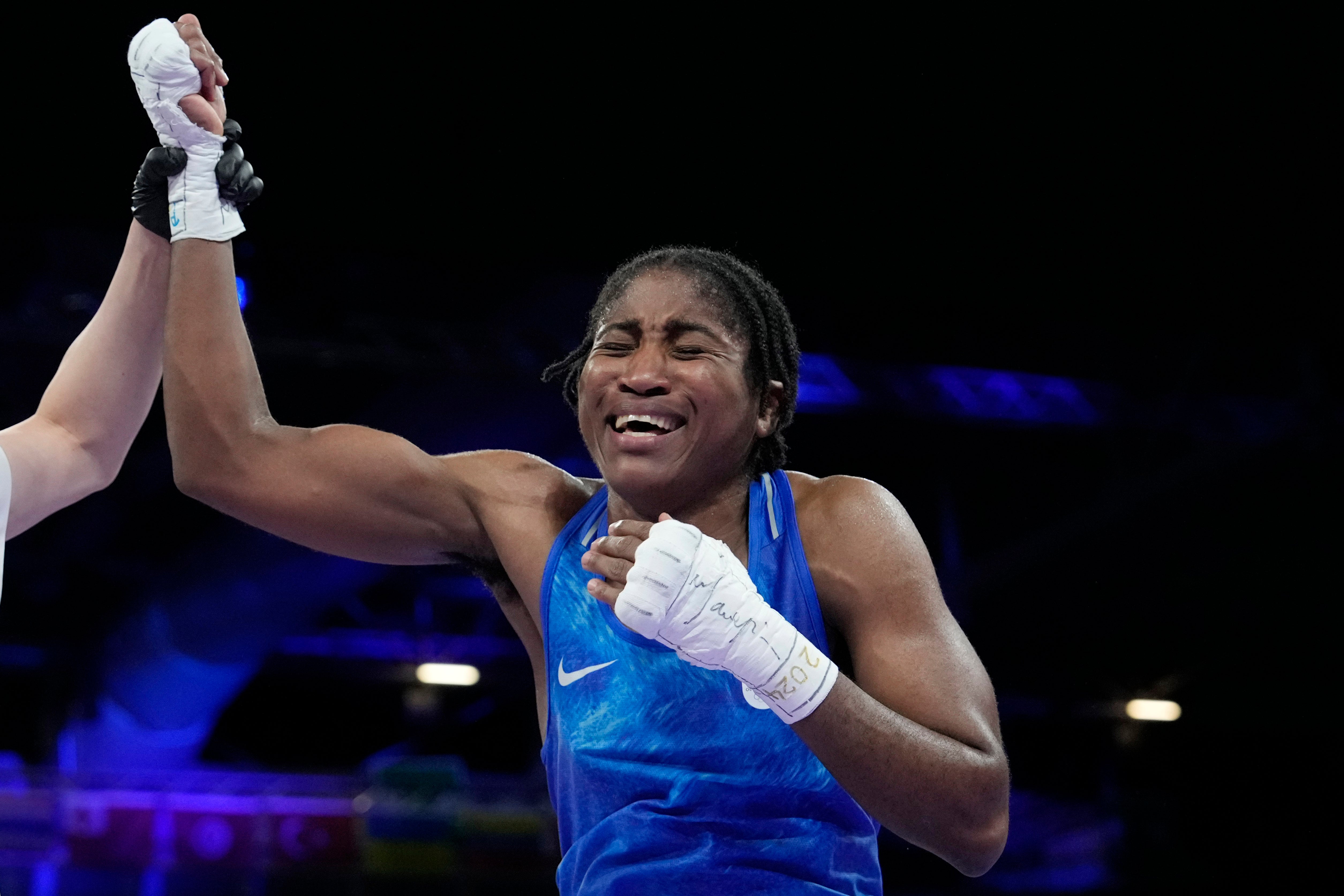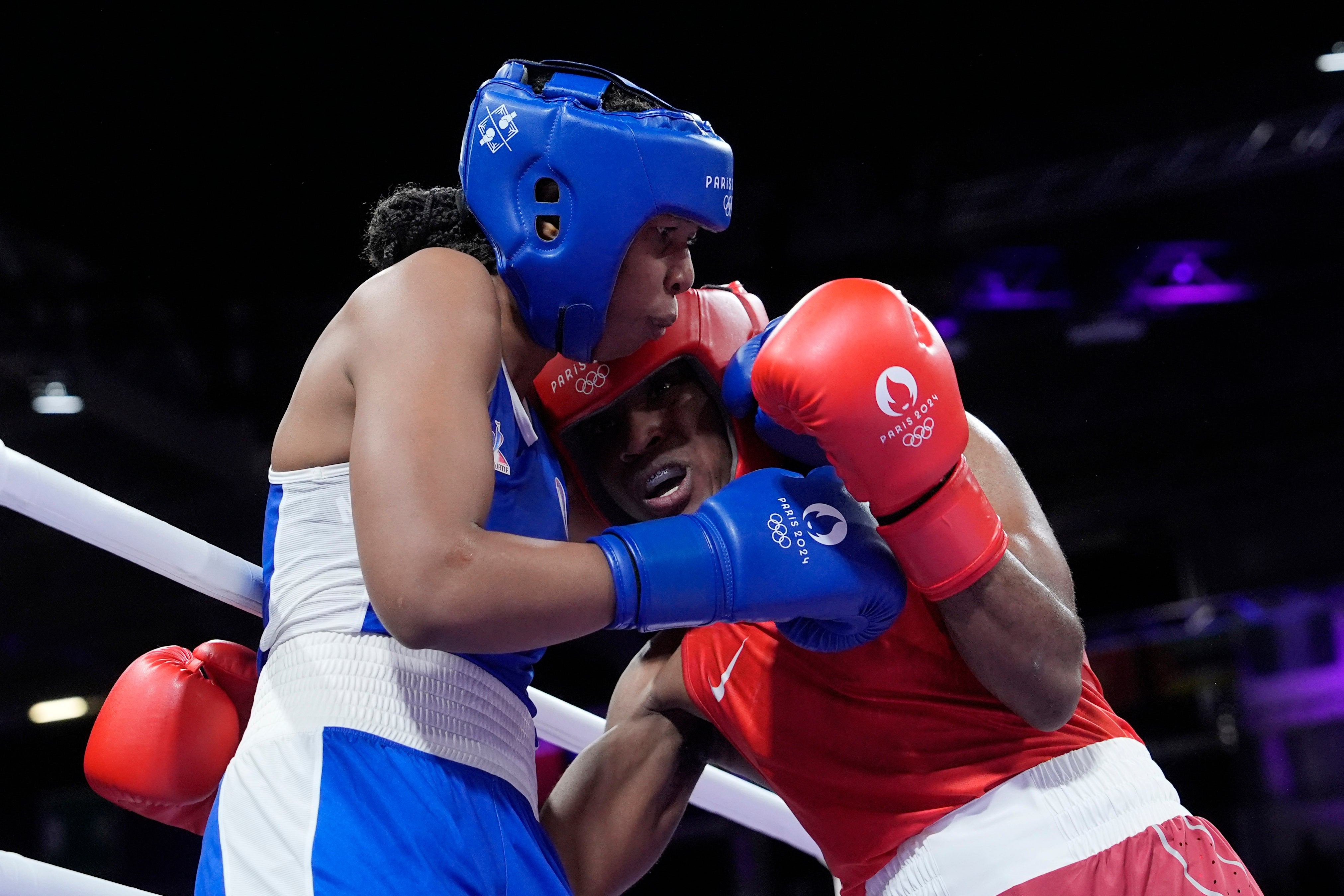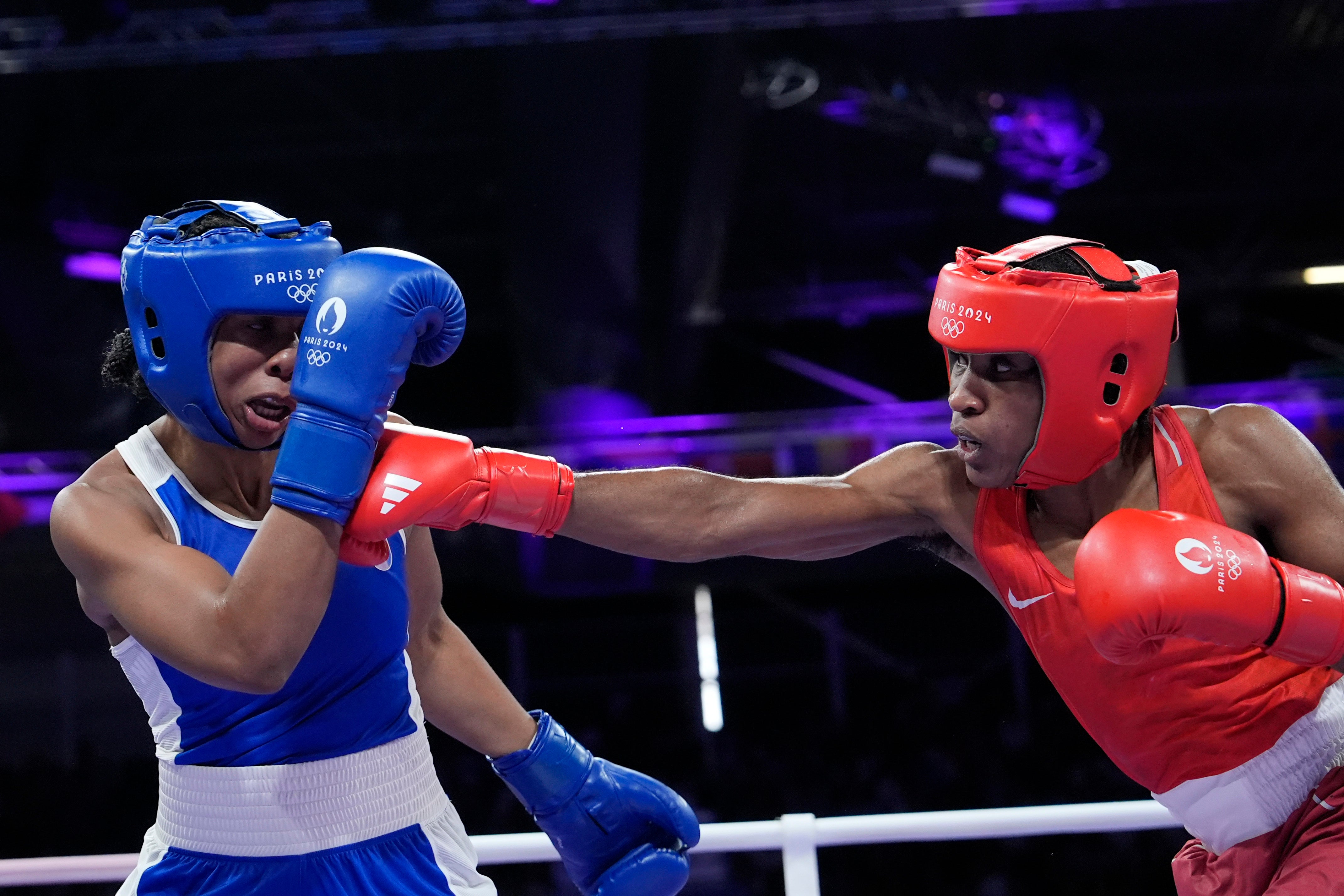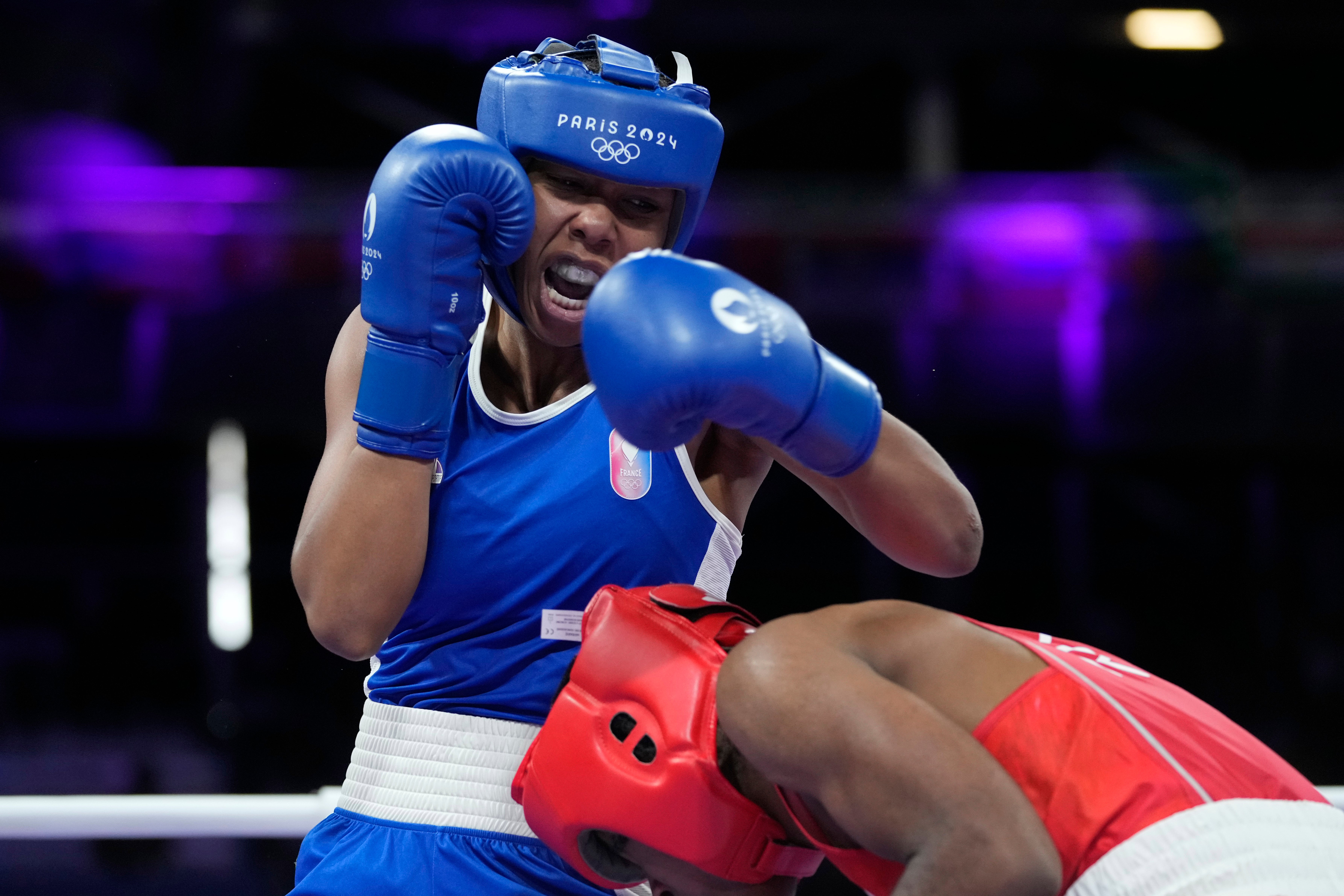The Independent's journalism is supported by our readers. When you purchase through links on our site, we may earn commission.
Cindy Ngamba has already made history for Refugee Olympic Team – does more await?
Born in Cameroon, but residing in Bolton and training with Team GB, Ngamba is determined to leave a powerful legacy by representing more than 120 million people around the world

Your support helps us to tell the story
From reproductive rights to climate change to Big Tech, The Independent is on the ground when the story is developing. Whether it's investigating the financials of Elon Musk's pro-Trump PAC or producing our latest documentary, 'The A Word', which shines a light on the American women fighting for reproductive rights, we know how important it is to parse out the facts from the messaging.
At such a critical moment in US history, we need reporters on the ground. Your donation allows us to keep sending journalists to speak to both sides of the story.
The Independent is trusted by Americans across the entire political spectrum. And unlike many other quality news outlets, we choose not to lock Americans out of our reporting and analysis with paywalls. We believe quality journalism should be available to everyone, paid for by those who can afford it.
Your support makes all the difference.Cindy Ngamba sent a powerful message of hope to all refugees around the world on Sunday, after becoming the first refugee medallist in Olympic history.
The boxer beat France’s Davina Michel to reach the 75kg semi-finals, which guarantees at least a bronze, in what is not only one of the stories of these Games, but surely one of the stories of any Games.
Ngamba celebrated her win by grabbing a board with the refugee team’s name written on it – a team of just 37 athletes that represents more than 120 million people around the world.
The team was formed by the IOC in 2016 and Ngamba says she wants her success to be beacon of hope for those who have fled their homes in order to escape war, persecution, or natural disasters.
“It means the world to me,” she said. “I am a human, just like everyone else on the refugee team and just like everyone else around the world. I want to change the colour and make it a gold.
“To all refugees around the world, keep on believing. You can achieve whatever you set your mind to.
“A lot of people won’t believe in you, a lot of people didn’t believe in me, but at the end of the day, it is just me in the ring. Only I can control the outcome.”
A little over a decade ago, Ngamba had never heard of boxing, but in truth she has been fighting all her life.

Born in Cameroon, she grew up with her mother but moved to Bolton aged 11 to live with her father. Settling was tough. She was bullied for her limited English, her weight, and her culture, but eventually made Bolton her home despite not having UK citizenship and lived a normal life. She even studied criminology at Bolton University.
Cindy and her brother Kennet applied for UK papers several times, but the Home Office did not want to know. Five years ago, they were detained at an immigration office because of paperwork issues and sent to a London detention centre, where they were held overnight and threatened with deportation back to Cameroon.
“Every little thing that has happened in my life since coming to the UK, I see it in a good way because if it didn’t happen I would not be where I am right now,” she said.
Ngamba was scared to go back to Cameroon – and not just because it ranked worse than Lebanon and Palestine in the 2023 Global Peace Index.

Ngamba is gay and, in Cameroon, homosexuality can be punished with up to five years in prison.
“The mindset is very different,” she said. “During my cases, I tried to use my boxing, me going to school or college but the Home Office did not want to hear any of it.
“You could get put in prison or get killed and with me being gay, I could not get sent back.”
Boxing was Ngamba’s solace. In Cameroon, she used to kick makeshift balls made out of socks or plastic bags, but discovered boxing when she was 15 and in Bolton.
She trains with the GB Boxing team that has launched the careers of Anthony Joshua and Nicola Adams but is unable to compete for Team GB, as she does not have a British passport.

The magic has still rubbed off, however. Ngamba has won 26 of 30 amateur fights, with seven of those victories coming inside the distance.
She now faces Panama’s Atheyna Bylon in the semi-finals on Thursday night. Lose and she walks away with bronze; win and she has a shot at gold.
“The French crowd did not believe in me,” she said. “Now I want to show everyone what I can do.”
Both in boxing and in life, she already has.
Watch every moment of the Olympic Games Paris 2024 live only on discovery+, the streaming home of the Olympics



Join our commenting forum
Join thought-provoking conversations, follow other Independent readers and see their replies
Comments